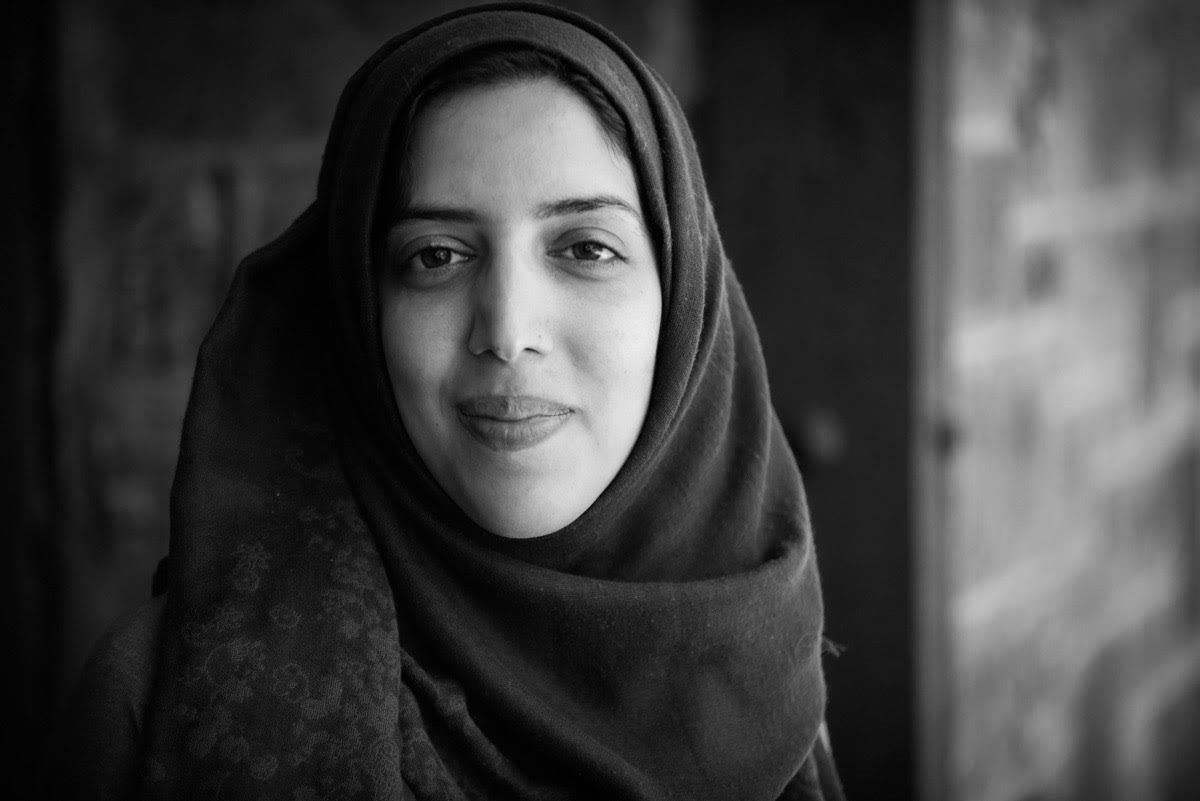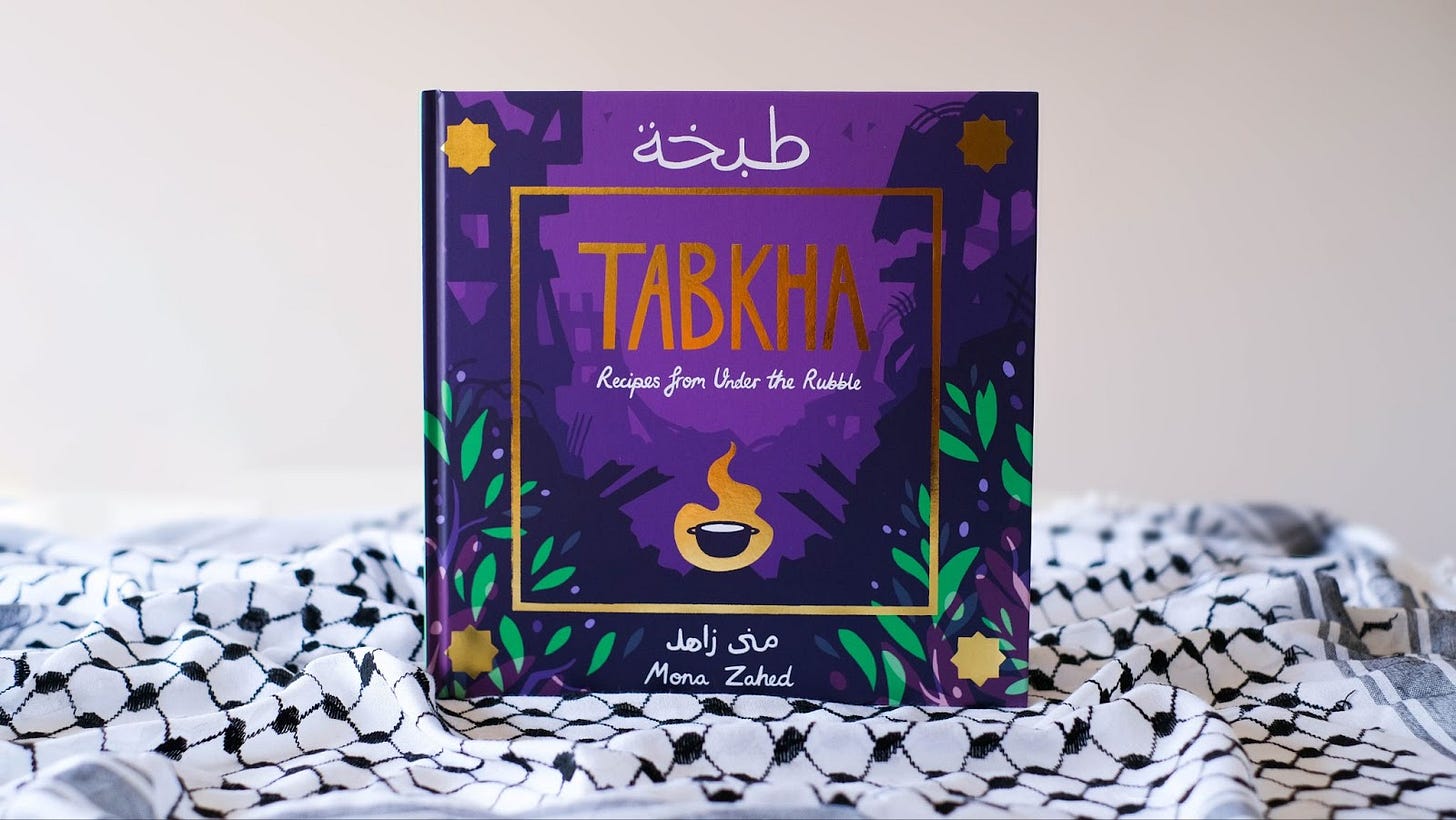In today’s newsletter, we’re excited to introduce Lama Obeid, a Palestinian writer based in Ramallah, whom we were connected to through our recent call for pitches for CELEBRATE. Lama writes about culture, gastronomy, and food politics in the context of the ongoing Israeli occupation and genocide. The day before publishing this, the Israeli government declared its intention to seize parts of the Gaza Strip and officially displace the population; Finance Minister Bezalel Smotrich has called for the country to embrace the term “occupation”. Meanwhile, a total blockade imposed by Israel on the territory over the last two months has led to critical shortages of food, fuel, and medication.
Writing from Ramallah, Lama tells us:
“On April 25th, the WFP announced that its food stocks had been fully depleted in Gaza after they had delivered the last of their stock to soup kitchens in Gaza. The Palestinian Red Crescent Society has also warned that their food and relief supplies in Gaza are nearly depleted. Videos have emerged of a woman cooking turtle meat to feed her family; whilst the people of Gaza are big on seafood, turtles are not a part of their diet, and they have only eaten them in desperation to sustain themselves. Other recent videos show a man sifting flour from the debris of his destroyed home, and two sisters sharing one loaf of pita bread with paprika to make it taste like a full meal.
The families that can afford to buy what is left in the markets are paying around US$75 to cook one meal (without animal protein). The people of Palestine in Gaza have a rich cuisine, yet they are being sentenced to famine. UN reports show that 60,000 children are suffering from acute malnutrition during the current blockade, and the Ministry of Health has reported that 57 children have already died.”

Lama’s writing simultaneously highlights these elements of hardship but expands beyond them, reminding us of the rich Palestinian food traditions and customs that existed and continue to exist even under siege. She sculpts this vital work into original and moving formats, including novel uses of the recipe, as well as video and poetry. In this newsletter, we’re sharing a few of her recent articles — and the link to her Substack — for readers who want to learn more about Palestinian food culture and the critical intersections of food and genocide.
We’re planning to host Lama on our podcast later this year, so if you have any specific questions you’d like us to ask her, please let us know by comment, email, or DM!
In ‘War Maqlouba’, a moving piece of autofiction, Lama imagines a group of journalists in Gaza coming together to make a recipe for “war” maqlouba, with each step revealing the hardship experienced by the journalists and their families. “Neither does our food have flavour nor do our lives”, one reflects on the difficulty of finding ingredients. The piece opens with a window into journalists’ group chat — a very human portrait of the dark humour and quips that keep people going in unimaginable circumstances.
“Does anyone have something that makes a buck buck buckeek sound?” someone in the group sent hoping to find a chicken somewhere. “No, but I have half a chicken stock cube,” another replied. “At least it used to make a buck buck buckeek sound,” the requester said. It will do.”
In ‘Fatteh Adas during genocide’, Lama weaves family lore and collective grief of watching the war in Gaza unfold from the West Bank into a recipe for fatteh adas, using, as she says, “a Pyrex dish, or as our parents and grandparents pronounce it, ‘Byrex’ as the Arabic language does not have a ‘P’ (which is why we began boycotting ‘Bebsi’ and ‘Bambers’ at the start of the genocide).” The lyrical recipe, told, unusually, in the first-person plural, highlights the communality of Palestinian food culture, and like the recipe in ‘War Maqlouba’ above, documents the texture, joy, and pain of daily life in Palestine within each step.
We take a large circular tin sidr – a Palestinian tray – and place our Fatteh Adas on it, surrounded by our olives, spring onions, and lemons to squeeze onto our Adas before we eat. We do not want to squeeze the lemons too early or the “vitamin C will be absorbed into the air,” as our parents often warned us. We take the sidr and go back to the living room to watch the news and we weep over our meal as we watch the children of Gaza eating a stale piece of bread with no Shuwarabat Adas to soften it.
Along with translating the contemporary Palestinian experience into novel recipe forms, Lama is working to document and preserve existing Palestinian recipes. For The New Arab, Lama interviewed Palestinian chef Mona Zahed about her cookbook Tabkha: Recipes from Under the Rubble, which, incredibly, Zahed wrote from a tent in Gaza after being displaced from her home. The book is a testament to the resilience of Palestinian cooking traditions: as Zahed says, “Our recipes tell the world stories of our history, cause, and that we exist…Each time Palestinian food becomes a trend online and I see people from all over the world making it, I feel proud that the world knows Gaza and that we are not forgotten.” The second edition of the book is now available for pre-order.
Maintaining an archive of Palestinian food culture is also the focus of ‘Rescuing our recipes: Preserving Palestinian culture in times of war’, where Lama notes how “one hallmark of that Palestinian resistance is the preservation of its food”. Palestinians in diaspora have opened restaurants across the world, importing ingredients from their homeland and offering what Palestinian chef Fadi Kattan refers to as “Palestinian hospitality”, while Palestinians under genocide and occupation continue making traditional foods, even if they must be tweaked with the limited ingredients available. The reported piece also touches on the issue of appropriation of Palestinian dishes into “Israeli”, “Mediterranean”, “Levantine”, or ambiguous “Middle Eastern” cuisines, arguing that this serves as an erasure of Palestinian identity and resistance.
We’re looking forward to discussing these themes in more detail with Lama later this year on our podcast. In the meantime, we encourage you to support her work by sharing and subscribing to her Substack: Lama Obeid.
Reminder: FFJ subscriptions cost just US$30 per year, and allow us to host writers like Lama on our podcast by covering our production costs! Please do consider supporting us if this is within your means. We will shortly be launching our Feminist Food Friends club in community with other food writers and we offer many other perks, like audio readings done by writers themselves (not AI robot voices!).
Other essential reading on food in Palestine (curated by Lama and FFJ — and please drop more suggestions in the comments!)
Food sovereignty during occupation, genocide by Fathi Nimer for Palestine in America
House of Meat by Rachel Hobley for Feminist Food Journal
‘My Hand Over Your Hand’: Finding Freedom in Teta’s Kitchen by Jude Taha for Palestine in America
Starvation, Resistance, Love by Maha Hussaini for the Massachusetts Review
Starving Palestine by Manal Shqair for Vittles
Stone and Seed by Mira Mattar for Vittles
The Dates by Laura O’Connor and Jana Amin for Palestine in America
What We Talk about When We Talk about Food Security by Jon Randall Smith for Eating an Island
When Food Doesn’t Taste Like Home by Doha Kahlout, translated by Katharine Halls for Vittles
A final PSA: Our friends at the Oxford Real Farming Conference (ORFC) are hosting In the Field at Wakelyns for two days of all things agroforestry on 28-29 May! This is a unique opportunity to explore the legendary Wakelyns organic farm and learn from the cutting edge of the agroforestry community, with a full programme of dynamic workshops on offer. Spaces are limited, and a final few subsidized tickets are available, so book your spot now.





Lama is an exceptional writer and an amazing person. Excited for this collaboration 👏🏼👏🏼👏🏼
So excited to hear that you'll be hosting Lama on your podcast!
Her work on Palestinian food culture, especially in the current situation is so important.
I'm really looking forward to listening to the Podcast.
I'm interested in hearing more about Palestinian traditional food and recipes. And at the current circumstances, is there a specific dish or practice that serve people who face difficulties cooking or finding the food?